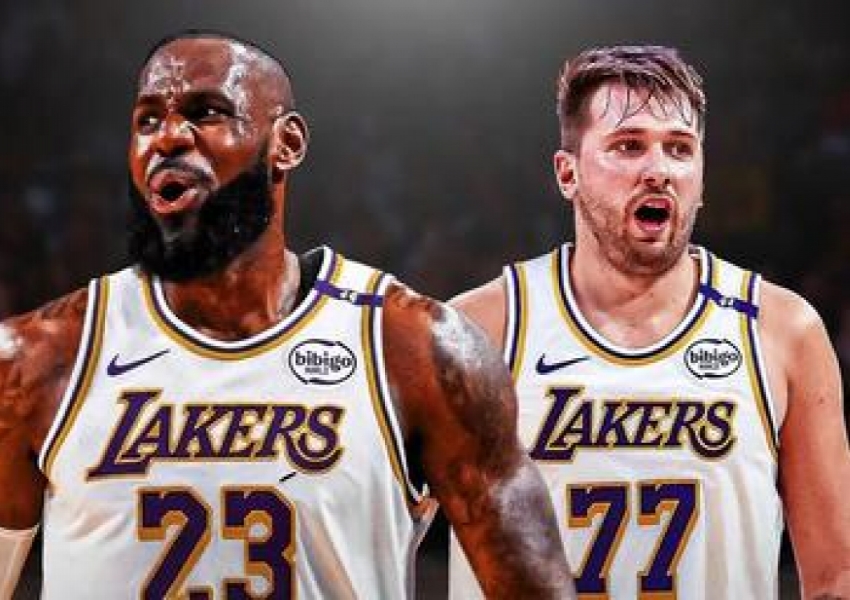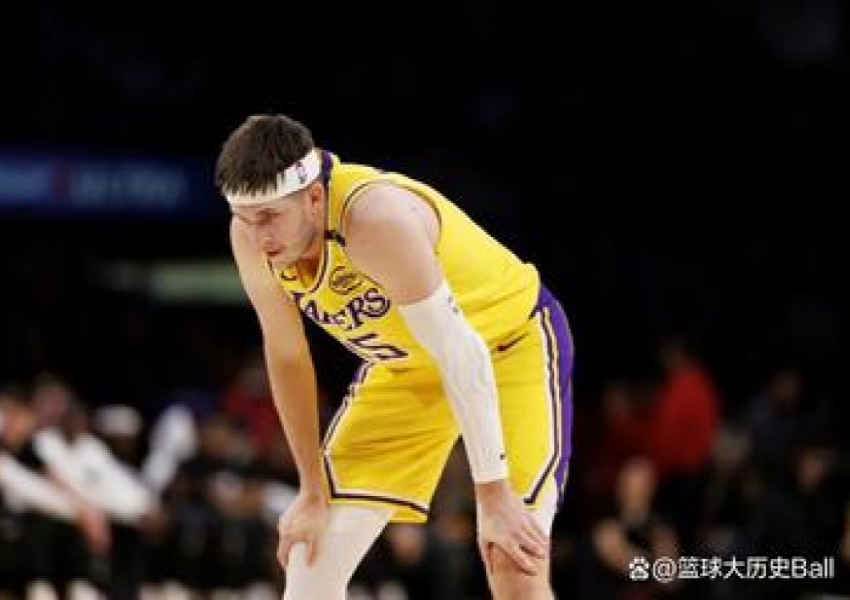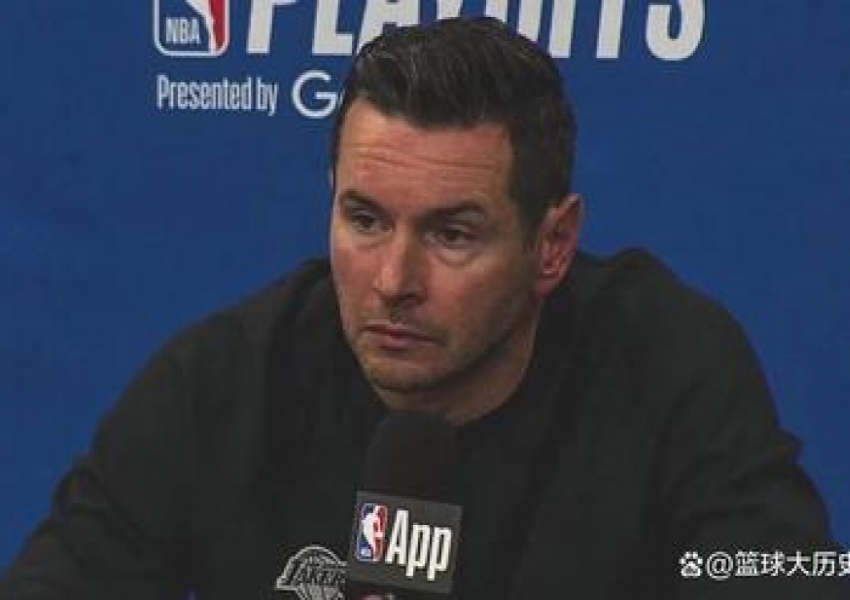Lakers Sent Packing in Round One: Who’s Really to Blame?
The Los Angeles Lakers’ season came to a sobering end in Game 5 of the first round, falling 96-103 at home to the Minnesota Timberwolves. A 4-1 series defeat that wasn’t just a gentleman’s sweep—it felt more like an unraveling of a flawed team caught between identity crises, coaching inexperience, and glaring roster imbalances.

This wasn’t the valiant kind of elimination that comes after clawing through close battles. This was a slow bleed. Despite the Timberwolves bricking 40 three-pointers (7-of-47 overall), despite Anthony Edwards—who had been shooting 43.2% from deep—going 0-of-11 from beyond the arc and finishing with just 15 points, the Lakers trailed virtually the entire game. They held the lead for exactly one possession. That’s how far the effort gap stretched.

Make no mistake: Minnesota didn’t play a perfect game. But their key players—Julius Randle and Rudy Gobert—played like men possessed. Randle finished with 23 points, 5 rebounds, and 4 assists, and dropped 11 in the fourth quarter alone, playing all 12 minutes as the Wolves outscored LA 22-16. Gobert? He looked like a reincarnation of prime Shaquille O’Neal, notching 27 points and 24 rebounds (including 9 offensive boards), shooting 12-of-15, and dunking the ball 8 times—a postseason feat not seen since the Diesel himself.

The Wolves pounded the Lakers inside, winning points in the paint 56-40 and owning the glass 54-37. The 10-board advantage on the offensive end (18-8) gave them a mountain of second-chance opportunities. Simply put, the Lakers got bullied in the trenches—and they had no counter.
Roster Flaws, Coaching Woes
If there’s a single stat that sums up the Lakers' downfall, it’s this: their most-used lineups in Games 4 and 5 featured a five-out "small ball" configuration with zero rim protection. No Jarrett Allen-type, no Bam, not even a competent lob-catcher or box-out specialist. The team’s failure to address its frontcourt depth after the failed Daniel Gafford trade at the deadline left the coaching staff scrambling. The emergency signing of Damian Jones and the half-healthy return of Maxi Kleber were band-aids on a gaping wound.
And here’s where rookie head coach JJ Redick takes a share of the blame. Whether it was stubbornly sticking to five-out lineups or not using Jaxson Hayes despite desperate need for interior defense, Redick looked every bit like a first-year coach still learning the chessboard. His counterpart Chris Finch, meanwhile, made the right adjustments at every turn—crushing LA in the details.
The Stars Didn't Shine Bright Enough
Blaming only the coach would be lazy. The Lakers' stars didn’t exactly deliver under pressure either.
Luka Dončić posted a decent box score—28 points, 7 rebounds, 9 assists—but the eye test told a different story. He was repeatedly hunted on defense, torched by Randle, McDaniels, and basically anyone who found themselves matched up with him. The backbreaker came late in the fourth: with the Lakers down 91-93, Dončić was blown by for a bucket, missed a layup on the next possession, then stayed to complain to the refs instead of getting back on defense—leading to an Edwards fast-break finish. Just like that, the deficit ballooned to six and the game was essentially over.
LeBron James, in what could be one of his final postseason games at this level, had a respectable 22-7-6. But he shot just 9-of-21 from the field and was a dismal -14 in plus-minus, the worst on the team. He also had to shoulder unnatural responsibilities, playing small-ball center and trying to anchor the defense against a frontcourt featuring Gobert, Randle, and Naz Reid. He did what he could—averaging 2.0 steals and 1.8 blocks this series—but at age 40, it was asking too much.
Then there’s Austin Reaves. Hyped as a fringe All-Star after the All-Star break, he was averaging 24.9 points over the final 17 regular-season games, shooting 52.4% from the field and 42.4% from three. In this series? Just 16.2 points on 41.1% shooting and 31.9% from deep. His defensive shortcomings were magnified—McDaniels ate him alive. If Reaves isn’t cooking on offense, he becomes a net negative. And that’s exactly what he was.
The Real Issue: A Broken Roster
Redick’s rotation choices were questionable, but they were born from necessity. The real blame lies in the roster construction. The Lakers simply didn’t have the pieces to match up with a team like Minnesota, whose physicality, depth, and versatility exposed every soft spot.
It all circles back to Rob Pelinka and the front office. This team never addressed its rim protection issues. They doubled down on wing-heavy lineups and bet big on Reaves taking another leap. But when the playoffs arrived, all those assumptions fell apart.
The loss of Mo Bamba and failure to land a capable defensive center left them playing musical chairs with guys like Kleber and Dorian Finney-Smith at the five. That’s not going to cut it in the playoffs against elite bigs.
What's Next?
The offseason will be telling. The Lakers still hold a first-round pick, a pick swap, and a few movable contracts. If they dangle Dalton Knecht in trade talks, it’s possible they can lure in a rim-running center or a switchable big man who can survive playoff intensity.
The silver lining? The core isn’t completely broken. Luka still has MVP-caliber offense. LeBron, if he stays, can still offer elite moments. A few smart moves could return them to contender status. But those moves must include size and defense—two things this roster lacked at the most crucial time.
And for all the whispers about Luka being a magnet for bigs, now’s the time to prove it. There are elite frontcourt players out there who would thrive alongside him. Whether it's through free agency or a trade, Pelinka has to make it happen.
A Final Word
When a team with LeBron James and Luka Dončić gets bounced in five games—by a team that shot 7-of-47 from deep in the closeout game—everyone deserves scrutiny. From Redick’s rookie mistakes, to Luka’s two-way inconsistency, to the roster’s glaring flaws, this wasn’t just a loss. It was an exposure. A warning flare sent into the offseason sky.
And maybe, just maybe, it’s the fire this franchise needed to finally stop patching holes—and start building a fortress.
Language matters. Execution matters more. But in the end, rosters win championships. And this roster never stood a chance.
Copyright Statement:
Author: focusnba
Link: https://www.focusnba.com/sports-blog/lakers-sent-packing-in-round-one-whos-really-to-blame.htm
Source: FocusNBA
The copyright of this article belongs to the author. Reproduction is not allowed without permission.
Recommended Blog
- First to Go? Lakers’ Trade Plans Signal the End of the Road for Dalton Knecht
- Matching Greatness: Just How Special Has Jalen Brunson Been in These Playoffs?
- Dominating the Lakers: Just How Good Is Julius Randle in the Playoffs?
- Truly Impressive! A Late-Blooming Talent Delivers: From 12+6+4 to 20+9+9, $30 Million Contract Locked
- The Shorter the News, the Bigger the Event! Is the Kings' Big 3 on the Chopping Block?
- +31 Plus-Minus! Klay's Redemption Game, Can Mavericks Pull Off a Play-In Miracle?
- Countdown to Zion's Departure: Does 24-Year-Old Zion Williamson Still Have Value?
- No Regrets! Mavs Management Responds Again on Doncic Trade, Still Standing Firm?
- What Defines Genius? From Guard to Center, Overcoming a 50% Decrease in Talent, Yet Still Becoming a Top NBA Star
- Best Sixth Man? Just How Good Is Payton Pritchard, Who Earns $6.7 Million a Year?